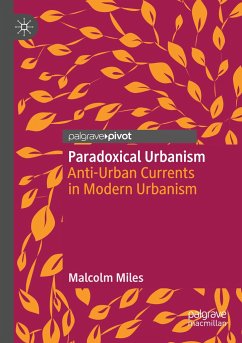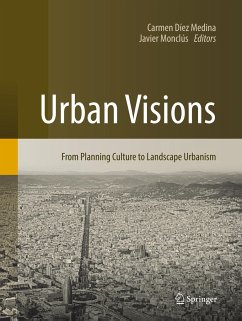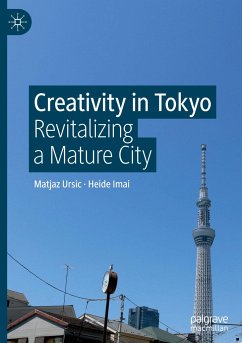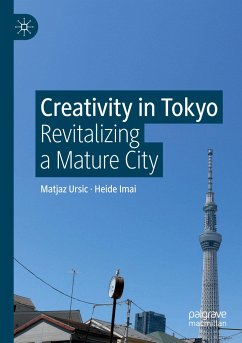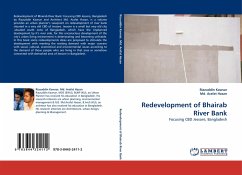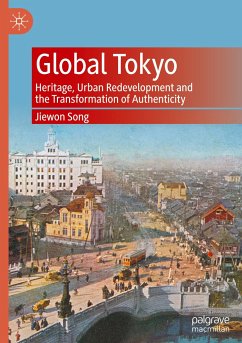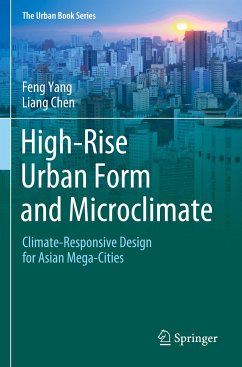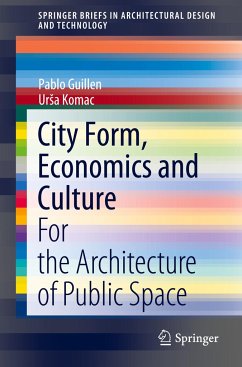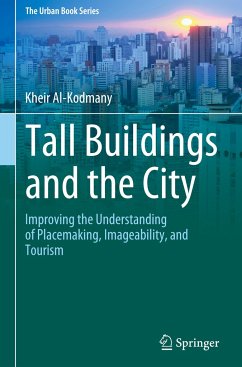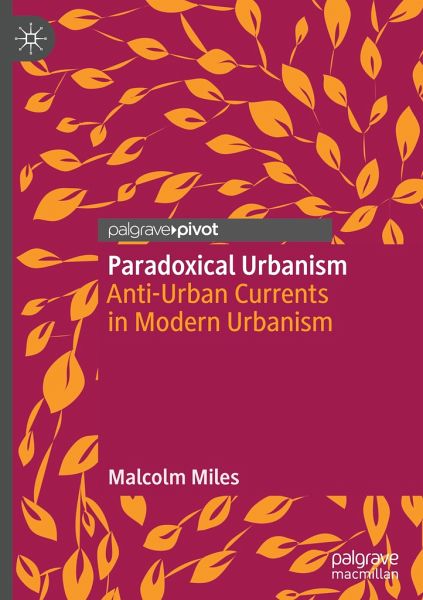
Paradoxical Urbanism
Anti-Urban Currents in Modern Urbanism
Versandkostenfrei!
Versandfertig in 6-10 Tagen
38,99 €
inkl. MwSt.
Weitere Ausgaben:

PAYBACK Punkte
19 °P sammeln!
Modernist urbanism seems progressive, even Utopian: design for a better world through a democratic and humane built environment. But two currents undermine this vision from within: an Arcadianism which turns to a rural idyll as retreat from change and the effects of industrialization; and an instrumentalism by which the humane vision becomes prescriptive and anti-democratic. Malcolm Miles argues that these two currents undermine modernism's progressive vision. This book examines the roots of modernist urbanism in the seamless, self-contained systems of Cartesian space; and identifies contradic...
Modernist urbanism seems progressive, even Utopian: design for a better world through a democratic and humane built environment. But two currents undermine this vision from within: an Arcadianism which turns to a rural idyll as retreat from change and the effects of industrialization; and an instrumentalism by which the humane vision becomes prescriptive and anti-democratic. Malcolm Miles argues that these two currents undermine modernism's progressive vision. This book examines the roots of modernist urbanism in the seamless, self-contained systems of Cartesian space; and identifies contradictions within modernist urbanism in its instrumentalism and reliance on de-politicised professional expertise. Miles adroitly reviews the postmodern culture of industrial ruinscapes; and posits that if cities are to be places of proximity, diversity, mobility and agency, this will require a move from modernist instrumentalism to a creative and radically democratic co-production of the built environment.





